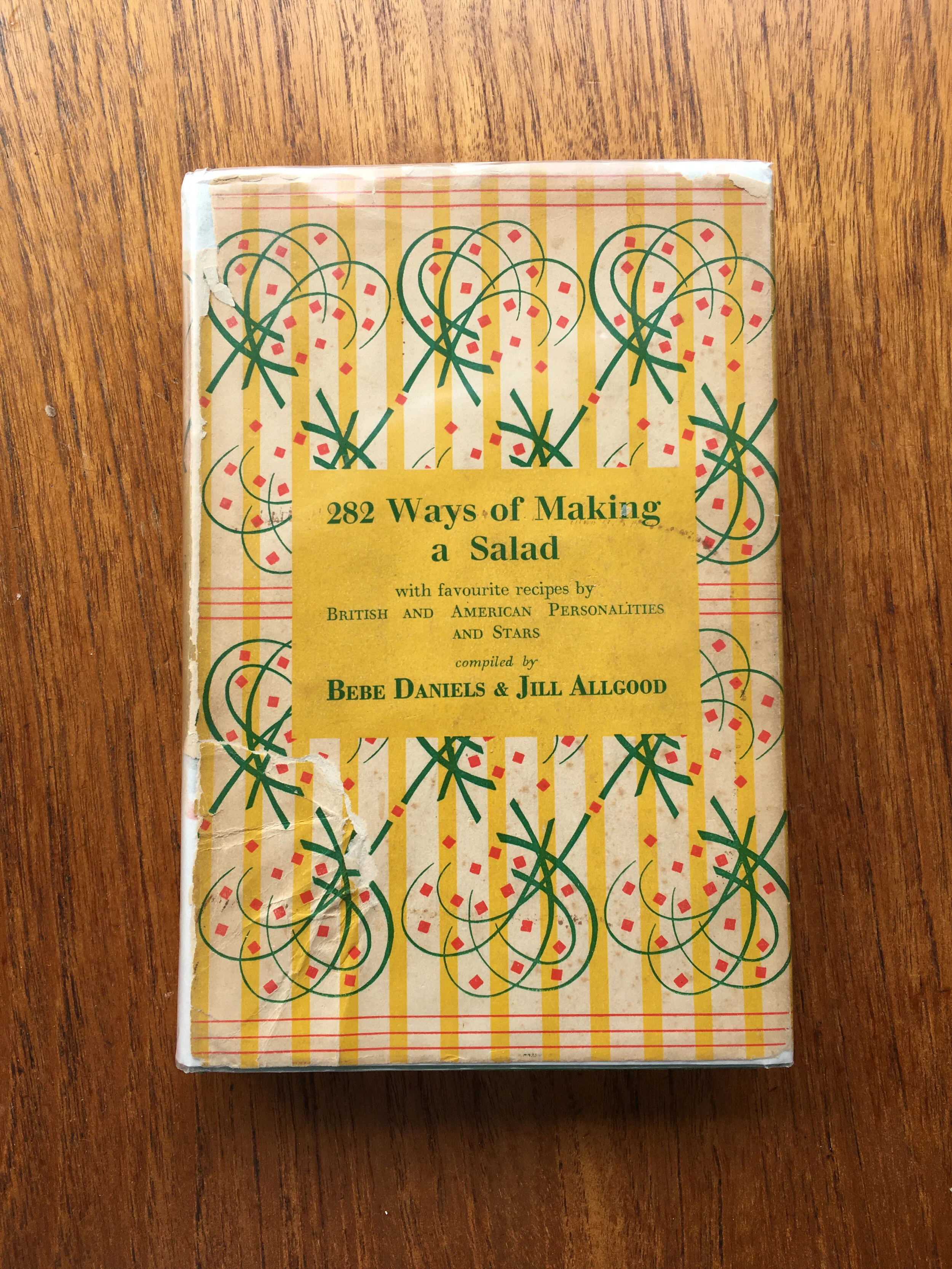HELEN BARROW: If you want me to do a quick demo, I will give you three words then, totally without context. Okay? [She mouths three words.]
HZ: Well, it looked like you were saying, “baa, baa, baa,” but that, I assume, is not what you were saying.
HELEN BARROW: That wasn't what I was saying, no.
HZ: What were you saying?
HELEN BARROW: So you've got the right one in that you've got the B. Yeah? So one of them was a B. So if I give you some context then, if I tell you one was a furry animal, one can be a civic leader, and one can be a piece of fruit. Okay, right, I'll do it again. [She mouths the same three words again.]
HZ: …I'm bad at this.
HELEN BARROW: But the thing is, I have deliberately picked three words that I know look alike, because, to go into the technical side of it, consonant confusion group, you know, a set of lip shapes that look alike.
Tranquillusionist: 282 Salads transcript
Today, I will be reading from the book 282 Ways of Making a Salad.
Read moreAllusionist 129 Sorry transcript
MARJORIE INGALL: We dislike "for any hurt caused", "for anyone who was offended", because the "any" implies maybe it was no one. And it's clear that if you're apologising, someone was offended. It's not in any sort of airy-fairy situation. That's another way, again, it's all about distancing yourself from what you did.
HZ: Yeah, and removing agency.
MARJORIE INGALL: Yes.
SUSAN McCARTHY: If your castle is surrounded by people shouting with pitchforks and torches, and you're up on the battlements shouting, "Sorry if I caused any offence," you know you caused offence.
Allusionist 128 Bonus 2020 transcript
KATE LISTER: When you're looking back at old texts and they're talking about 'slut holes' that need clearing out, it makes us fall about laughing; but what they actually mean was like a hole that was just full of rubbish and crap in the street, that you'd put coal into and store there. And there's something that was called ‘slut wool’ as well. You know when you lift up the sofa or the bed and you call them dust bunnies now, all those balls of dust - that was ‘slut wool’ once upon a time.
Read moreAllusionist 123 Celebrity transcript
GREG JENNER: If we look back at classical sources, where do we get fame from? What does it mean? What's the origin point? The Greeks had a goddess called Pheme, and she is a winged, beautiful goddess, with a trumpet. She parps a trumpet. And that is your name being sung into the heavens through the trumpet. So it's a nice thing. It's good. You get fame and it means people going to hear about you. But when you get to the Romans, and we get one of the most famous Roman writers, Virgil, in his Aeneid, he talks about Fama, where we get our word 'fame' from. That derives from the verb 'fari', meaning to speak or gossip about someone. And Virgil's Fama is not a beautiful goddess with wings and a parping trumpet; she's basically Godzilla. She's a terrifying, massive monster who stalks the land and she's covered with eyes and ears and tongues, and she grows in scale the more people that are gossiping about you. So the more you're being chatted about or gossiped about, the larger this monster becomes until she's vanishing into the clouds and she never sleeps. And she hunts you down. And Virgil's version of fame is predatory. It's terrifying. It's this enormous force of nature that comes for you, and there's nothing you can do about it.
Read moreAllusionist 93. Gossip - transcript
HZ: A thousand or so years ago, the word ‘gossip’ meant something quite different: a family member. The word broke down to ‘god sibb’, like a godsibling, although then the ‘sibb’ wasn’t necessarily a sibling, was more general, could refer to anyone you were related to. And over the next few hundred years, more specifically, gossips were the close female family and friends who would attend to a woman during labour; she would be sequestered and maybe half a dozen gossips would gather in the room to take care of the mother and help deliver the baby and witness the birth for the purposes of the baby’s baptism - at which these gossips, godsibbs, would be the child’s sponsors. And during these confinements, the women would keep each other company and talk. So you can see how the word would evolve to mean the kind of confidential chat you’d have with someone you’re close to, but by the mid-16th century the word had taken on a bit of a disapproving tone, that the talk was trivial and maybe scurrilous - and female. And these associations persist to this day.
LAINEY LUI: One of my goals as a gossip crusader is to end the pejorative way it's presented in culture, that it's a thing that hens do all around, pecking at each other. It's highly feminized, which is why it's not taken as seriously, when in fact the research shows that we all gossip: it's a human way of communicating.
Read more




